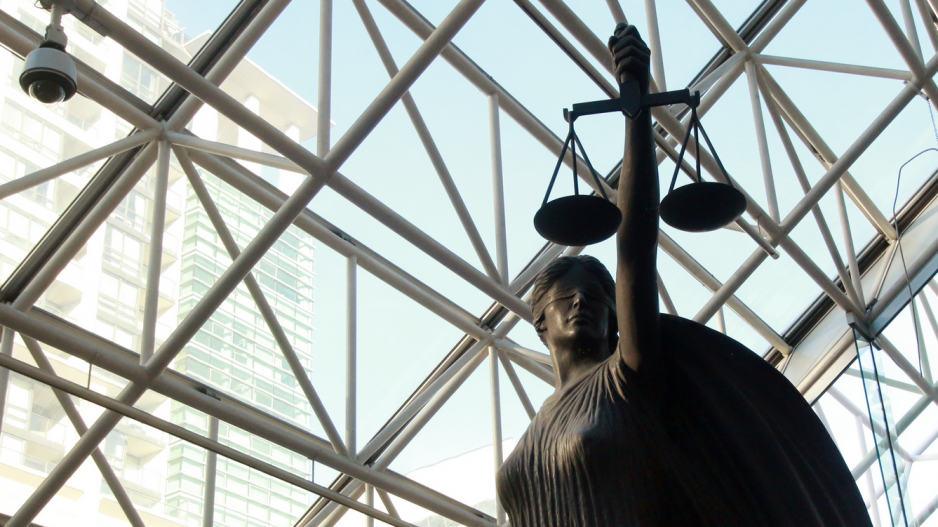A Vancouver strata corporation is suing a developer and contractor who allegedly operated a construction crane above the strata’s buildings and lands without permission.
Strata Plan BCS1199 is suing Keltic Canada Development Co. Ltd. and WCL Formwork Ltd. for the crane’s alleged encroachment into the strata’s airspace, which the strata says is a trespass and nuisance, according to an Aug. 12 civil claim.
The strata corporation represents unit owners of The Left Bank, a nine-storey condo building at 919 Station St. It claims Keltic and WCL are constructing one or more buildings on an adjacent site at 200 Prior St. and using a crane that swivels above the strata’s property.
An online project description by architect MCM Partnership suggests Keltic’s work is related to a new medical office building at 220 Prior St. at the northwest corner of the future St. Paul’s Hospital site.
“The defendants’ conduct demonstrates complete disregard for and a blatant violation of the strata corporation and the owners’ inviolable property rights,” said the civil claim.
“The operation of the crane jeopardizes the safety of the owners and their tenants, occupants and visitors,” added the claim, which seeks an interim injunction and $1 million in punitive damages.
The claim has not been tested in court, and the defendants have not yet filed responses to the claim. The claim says no resolution was reached after the strata demanded cessation and its counsel, Paul Mendes, met with Keltic’s lawyer.
Mendes and Keltic did not respond to requests for comment. Nor did Keltic’s lawyer, Gillian Piggott.
WCL and its registered lawyer, Paul Weir, also did not respond to requests for comment.
WCL was allegedly formed in 2024 by the principals of Whitewater Concrete Ltd. and related entities, which are currently in a receivership overseen by Deloitte Restructuring Inc., according to public insolvency documents.
Airspace is a legal concept in B.C. that gives a property owner rights to the air above their property to a reasonable level reflecting their uses of the property.
One expert said there is always a level of risk, and that WorkSafeBC has many regulations regarding safe crane operation.
“If the crane swings over neighbouring properties, easements or ‘swing agreements’ are required between the developer or property owner and the neighbouring properties under the crane’s radius,” said Jen Mutas, a field occupational health and safety manager with BC Crane Safety.
“If one isn't in place, a motion can be filed to prevent any crane movement over the neighbouring properties, including weathervaning, which is an important safety component of crane operation,” she said, referring to when cranes rotate freely to minimize wind resistance.
The Left Bank cited in its civil claim a 2020 decision by B.C. Supreme Court Judge WA Baker suggesting “licence agreements,” with or without payment, are an industry practice in similar situations involving cranes and airspace.
The precedent—OSED Howe Street Vancouver Leaseholds Inc. v. FS Property Inc.—granted an interim injunction prohibiting the operation of a crane outside of licensed hours, ruling that it would otherwise be trespassing.
The decision acknowledged that neighbours in dense areas must engage in some give-and-take to accommodate construction.
“There is no perfect solution to construction in a densely populated urban environment like downtown Vancouver,” wrote the judge.



